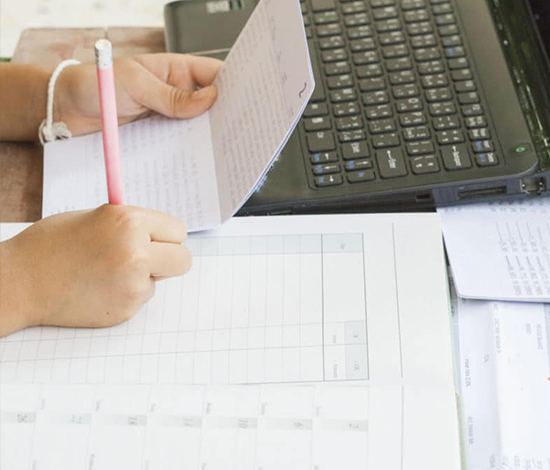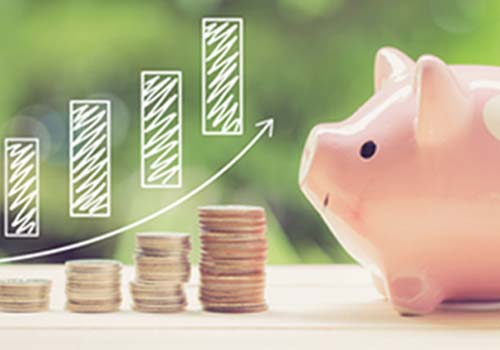Like many people, when you bought your house and got your mortgage loan, money might have been a little tight. Not only did you have a new house payment (including new property taxes), but you also had to buy new furniture, right? But then, after a few years or maybe a new job, you started to have a little extra money and you’ve wondered whether it makes sense to pay extra toward your mortgage, or if you should invest the money. It’s a good problem to have, but there isn’t one right answer for everyone. It depends on you, your discipline, your risk tolerance, and your goals.
Should I Pay Off My Mortgage Loan Early or Continue to Make Payments?
There are clear financial implications to making extra payments vs. investing the money, but the decision to pay off your mortgage early isn't only a financial one. Depending on your personality and goals, the peace of mind from owning your home free and clear of a loan may be more important than coming out ahead financially by investing the money.
Let’s assume you have an extra $500 per month to either invest or pay to the principal on your mortgage. Here are some factors to consider:
Is Your Emergency Fund in Place?
Before putting extra toward your mortgage or investing, take a moment to assess your financial safety net. Experts recommend setting aside 3 to 6 months of living expenses in an emergency fund. Without this cushion, you may be forced to dip into your investments or take on high-interest debt if something unexpected happens, like a job loss or medical bill. Paying off your mortgage early is a smart long-term move, but don’t sacrifice your short-term financial security to do it.
Effect of Compounding Interest Rates
If you invest $500 per month and earn a conservative rate of 6% in mutual funds, at the end of ten years you’ll have nearly $82,000. If you apply that $500 per month to an average mortgage loan over ten years, you’ll pay off an extra $70,000 beyond what you would have by only making your minimum monthly payment.
Obviously, you’ll be better off financially investing the money, but in order to realize that benefit from investing you’ll need discipline to avoid the temptation to pull that money out for another purpose, like a vacation. When you apply the $500 toward the principal on your mortgage, that money is gone; you used it to pay down debt and you can’t use it for anything else.
In addition, when you seek higher returns by investing your money, you may subject those funds to downward movements in the market. While over the long-term most people experience higher returns (rates of growth) in mutual funds, there are times when the market goes down and your investment balance can drop.
Lastly, there can be tax consequences for paying off a mortgage loan early. Under the tax code, many people can deduct the interest paid on their mortgage from their taxable income. As you pay the principal balance down, you reduce the amount of the deduction. At the same time, when you sell off your investments in the market you pay capital gains taxes on their growth above your deposit amounts.
Emotional Payoff: The Value of Peace of Mind
While financial growth is important, don’t discount the mental and emotional benefits of living mortgage-free. For many people, knowing their home is fully paid off, especially heading into retirement, brings a deep sense of security and peace. It’s not always about maximizing returns; sometimes it’s about reducing stress and creating a simpler financial life.
The Right Decision for You
Most financial advisors tell you to invest the extra money instead of making extra mortgage payments. On paper, they’re right. Over the long haul, you’ll usually be better off financially by investing, rather than speeding up the repayment of a mortgage loan; especially in low-interest rate environments. But before making a decision, ask yourself what’s important to you. Do you have the discipline to set that money aside and let it grow in the market? Can you handle the ups and downs of the market? Or is it more important to you to pay off your mortgage in 15 or 20 years instead of 30, and have no mortgage payment? The right decision for someone else might not be what’s right for you.
Know How to Make Extra Payments the Right Way
If you decide to pay extra on your mortgage, make sure the money is applied to your loan’s principal balance—not just to future scheduled payments. Many lenders allow you to specify this when making a payment. It's always a good idea to confirm with your mortgage servicer so your extra payments work the way you intend.
Something to Keep in Mind: What Else Could You Do With That Money?
Before locking your funds into mortgage payments or long-term investments, think about your broader financial picture. That $500 a month could help you:
- Max out your retirement accounts
- Build a college fund for your kids
- Pay down higher-interest debt, like credit cards
- Increase your savings for future large expenses
Evaluating the opportunity cost, what you give up by choosing one path over another—can help clarify your best move.
Metro Credit Union | Best Home Mortgage Loans in Omaha, NE
Metro Credit Union Mortgage is the home lending side of Metro Credit Union. Buying your first home is a big step, but it doesn't have to be a scary one. The more you know about the home buying process, the more confident you'll feel about making these important decisions that will shape your future. When you're in the market for a home loan, you know you can trust your credit union to provide a great rate, great service, and all with fewer and lower fees. And, we've got you covered with a wide variety of lending options. Use our financial calculators for calculating a mortgage or refinance.



















